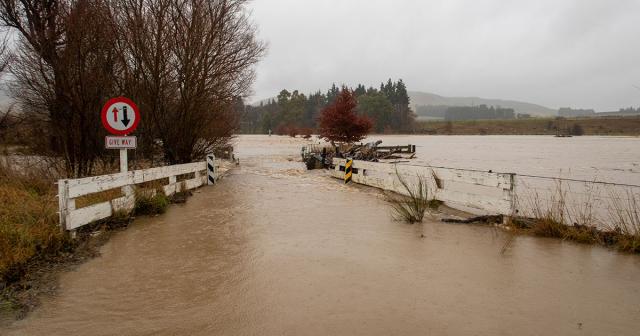Devastating storms over the past week have caused significant damage to farm infrastructure, irrigators, trees and shelterbelts through Canterbury, Otago and Southland.

Beef + Lamb New Zealand is working alongside other agencies to support farmers as they face the clean-up while dealing with tight feed supplies and on-going challenging weather.
Look after yourself and your team: Safety has to be your number one priority. Stay connected with others in the community. Contact the Rural Support Trust for extra support for you or anyone you are concerned about. 0800 787 254
Record all damage and contact your insurance company: Take photos of damaged infrastructure and where it is necessary to break regulatory rules to protect animal welfare. For example, allowing stock into waterways when stock water is not available.
Make a plan: It is easy to feel completely overwhelmed by the enormity of the task ahead. Make a list of priorities. Consider options where feed is tight. This could include the use of N, off-farm grazing or selling stock. An early decision is a good decision, particularly where irrigators have been damaged and feed supplies are tight.
Insurance Advice from FMG
FMG, New Zealand’s leading rural insurer, is supporting clients hit by the recent windstorm events across the country. The severe winds have caused widespread damage to rural properties, infrastructure and significantly disrupted farming operations.
If you haven’t contacted your insurer yet, we suggest you do as soon as possible.
The types of claims coming in include damaged roofs and farm buildings, damaged fencing as well as damaged irrigators.
FMG have had loss adjusters out in affected regions visiting clients since Friday. We’re progressing claims to resolve them as fast we can to help our clients recover from these events. Irrigation companies, such as WaterForce, are flying in irrigator build crews from Australia and they’ve placed orders with manufacturers already. We know how important it is to get this critical farming equipment back up and running.
Their advice is:
- Always, put your safety first.
- For claims, the fastest way is to use FMG Connect or call us 0800 366 466.
- Photos. Take as many photos of damage as you can, and before you throw items out, as these will help support your claim.
- Essential repairs. You can carry these out if it is safe to do so. Please take photos beforehand.
- Minor repairs. Again, please take photos of the damage before you carry these out.
- Welfare support is available from Rural Support Trust.
Windthrown trees are very dangerous
These trees can be unstable, unpredictable and are under considerable tension. Make a plan before getting started with the chainsaw!
Hazards include:
- Unstable root plates (the roots and soil uplifted from the ground).
- Suspended stem under high tension.
- Stems wedged between standing trees.
- Unstable standing trees.
- Shattered treetops.
Make sure you:
- Keep children away.
- Wear full safety equipment.
- Make sure you have stable footing.
- Have a clear space to work and an escape plan.
- Have a clear communication system set up.
- Don’t work directly under wind-wrenched trees.
See MPI's factsheet on dealing with trees damaged by storms (PDF, 400KB).
Animal health advice from Northern Southland Vet Andrew Cochrane
Tailing is stressful, this can be exacerbated in poor weather conditions and may increase the risk of prolonged mismothering and deaths from exposure. The risk of injection site lesions and infections is also higher when the skin is wet.
Water for those relying on power for reticulated water supply to troughs, please make sure you have a contingency in place or alternative sources of water available. This is particularly important for lactating animals, especially lactating cows. If cows have been without water for prolonged periods we can see significant health impacts from dehydration but also if suddenly reintroduced to water (salt toxicity).
Vaccine efficacy – storage conditions are very important for vaccines to remain effective. This is particularly true for the scabby mouth vaccines which are 'live vaccines'. If you were without power for prolonged periods and unable to maintain the recommended storage temperatures, you should contact your vet for advice.
Damaged Irrigators – advice from IrrigationNZ
Be aware that some damage isn’t immediately visible. Some components may now be under significant tension and could release suddenly, creating serious safety risks. Before attempting to straighten, lift, or reconnect any equipment, pause and plan. Avoid “DIY with a spanner” approaches – incorrect handling can make the damage worse or cause serious injury. Consult your irrigation service provider first, they can advise when and how they are best placed to support you, even if there is a queue for responding it may be better to wait for the professionals.
Visit their website for more guidance.